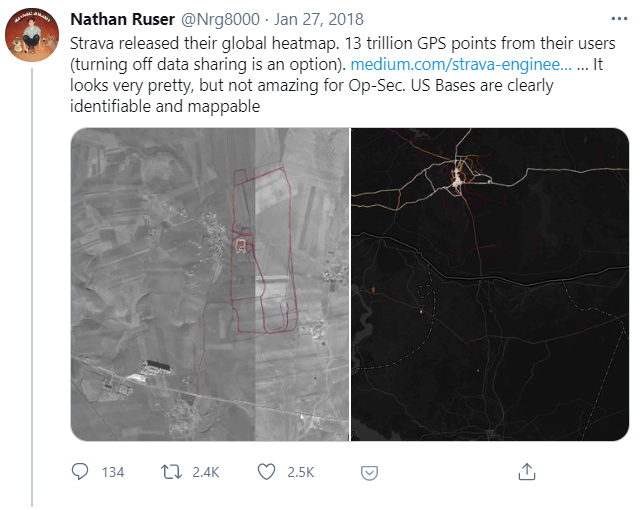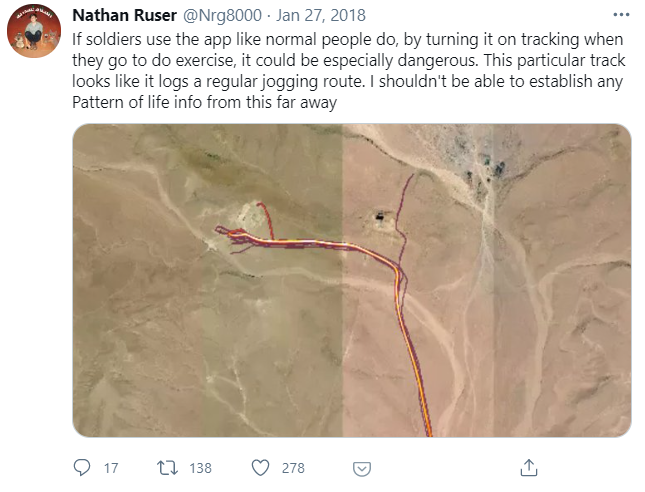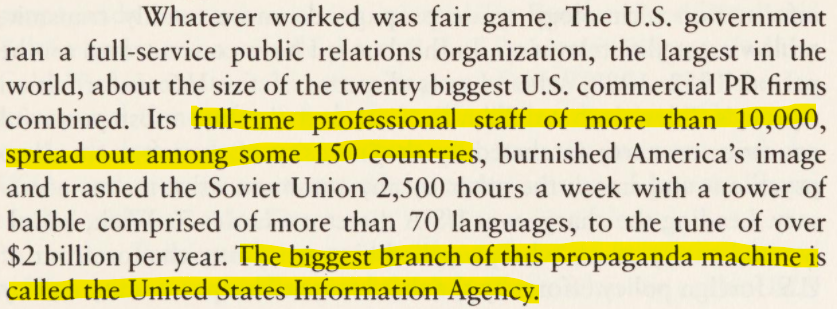Insightful newsletter of Drishtikone: Issue #247 - Data as a Natural Resource
Data can be used to bring any nation or society to its knees or even obliterate an entire group. It is a "Natural Resource". Yet we have a "free-for-all" where anyone can collect and steal it. Why?

Image by Birgit Böllinger from Pixabay
“Reasoning will never make a man correct an ill opinion, which by reasoning he never acquired” ― Jonathan Swift
Our Karmic Structure is the repository of types of memories. Genetic, lifetimes, community, species, galatial and existential. Some of those memories are carved out (Prarabdh) out of the entire pool of collected memories (Sanchit) to expense in this lifetime. A lifetime that has been fashioned and defined by the Prarabdh. The idea of this existence was to put us in a configuration (family, world, society, country, economic and relationships) where we have the opportunity to dispense most of it. If we are aware. Some can realize this as an opportunity. Others simply cannot and so add onto the burden instead of dispensing with it.
Because our karmic structure and its exigencies are responsible for our life’s configuration, the planets and astrological configurations are aligned with that karmic direction as well. So, when someone looks at our astrological configuration, s/he can predict what our lives will be like.
The assumption there is that we will be foolish enough to flow with the imperatives of our karmic structure. And not have the wisdom to come out of the impact of our memories and live in the present sans any conditioning.
So, if you carefully look at it, the ancient Indians had embedded our entire lifetimes’ worth of memories in simple algorithms that could be read and used to predict who were will be (assuming we would remain enslaved to our memories/karma and not rise above that). Most of us don’t disappoint that assumption.
That is why Jyotish was defined as 'Karma-phala-vipāka-kāla-vidhānam', i.e., set of rules for timing of fruition of past actions. (Source)
We as a people had created the most sophisticated data analysis, intelligence and predictive tool fashioned into simple algorithms that helped us create sophisticated astronomical charts called panchanga thousands of years ago when no one even knew what stars or planets were.
Time has come to not just preserve the collective national data but prevent it from being plundered by foreign predators. It may be time for radical and bold steps. For, the consequences of what the future may have in store are just way too catastrophic.
Data as a natural resource
IBM’s blog post declares “Data is the world’s new natural resource.”
Data is the world’s new natural resource, unleashed by the maturation of artificial intelligence, and holds the potential to generate economic wealth, health and social wellbeing. As with any natural resource, it must be looked after. Good data stewardship must be transparent and done for a purpose. (Source)
They are not the only ones. World Economic Forum was also clear in its article last year (titled - We should treat data as a natural resource. Here's why) that data needs to be treated as a natural resource.
By understanding and investing in the next digital frontier, by treating data as a natural resource and by harnessing convergence, we have the opportunity to drive progress on some of the world’s most intractable societal challenges. Actually, it’s more than an opportunity; it is an obligation to ensure that we enable technological disruption and transformation while also advancing environmental sustainability, human rights, security and equity across every aspect of our world. (Source)
The Bulletin of the Atomic Scientists shares the absolute power and consequent threat posed by data and its use for societies and nations.
As genomic technologies develop and converge with AI, machine learning, automation, affective computing, and robotics, an ever more refined record of our biometrics, emotions, and behaviors will be captured and analysed. Governments and, increasingly, private companies will be able to sort, categorize, trade, and use biological data far more precisely than ever before, creating unprecedented possibilities for social and biological control. Some even argue that the new geopolitical order will be based on the commodification of a new resource emerging from the convergence of the artificial intelligence and biotech industries: our biological and genomic data. (Source)
That is a very significant statement - “The new geopolitical order will be based on the commodification of our biological and genomic data.”
And this statement is not out of context.
Genomic Bio-weapons
We know that in terms of China, BGI Group - Beijing Genomics Institute, a genetics-based pharmaceutical company has been involved in building the gene pool in Xinjiang to create a “genetics-based surveillance” of the ethnic Uighurs. they have already constructed genome mapping for 700 million Chinese. They have also had access to the required data and material to do mappings in Australia, Israel, UAE, Saudi Arabia, and Pakistan.
There are indications that there is work happening and bioweapons of the future may be targeting a specific group of people based on their DNA. Back in December, we devoted an entire issue on this - Issue #196 - Our Barbarik Future
This is with respect to how data - our biological and genomic data - could be used as a powerful weapon against us.
But how about other data?
Data as Intelligence assets and weapons against adversaries
Data that is collected by big tech companies - social media, phone and other organizations.
Jon Bateman, a fellow at Carnegie Endowment for International Peace who has served as the Director for cyber Strategy Implementation for the US Secretary of Defense wrote an article for Wall Street Journal, and embedded in it was a line that sounded quite ominous if one was to get the import.
But there are dangers in restructuring any U.S. industry. One of the most serious remains largely unrecognized: national-security risk. Despite their faults, tech companies contribute directly to American military and intelligence operations. Their titanic scale can itself be an asset. Any responsible antitrust debate must address the national security risks of breaking up Big Tech—and the parallel risks of keeping these companies intact. Consider cloud computing. The Defense Department is planning a massive global cloud called JEDI. Unlike corporate clouds, the “war cloud” must support life-or-death missions on austere battlefields despite virtual or physical onslaughts. The Pentagon found only two eligible bidders: Amazon and Microsoft . Three defense secretaries, a federal judge and the Government Accountability Office have upheld this bidding process. (Source)
Big tech companies contribute directly to the American Military and intelligence operations.
So, is it just me or should every sane and responsible government establishment of other nation-states equate big tech with US Intelligence?
Data has power. Lots of power. And these big techs which gather so much data about every one of us have leverage that they can use against us. Every one of us. And they do have an unscrupulous and predatory history to back up that fear. Many documents (emails, webchats, presentations, spreadsheets, and meeting summaries) show that Zuckerberg would use the information on friends, relationships, and even photos of the people his company partnered with and his rivals to consolidate his power.
Facebook CEO Mark Zuckerberg oversaw plans to consolidate the social network’s power and control competitors by treating its users’ data as a bargaining chip, while publicly proclaiming to be protecting that data, according to about 4,000 pages of leaked company documents largely spanning 2011 to 2015 and obtained by NBC News. (Source)
If he could do that to his own partners and rivals, do you think that Zuckerberg and the US establishment, which considers these companies as contributors to the US power would not do it as well?
And, Facebook is not the only one.
Facebook is not alone in the data collection boom. This May, it was revealed that Snapchat employees were using the app’s data to obtain location data, pictures and email addresses without users’ consent. A new book by former Harvard business professor Shoshana Zuboff goes into great detail of the practices of what she calls “surveillance capitalism.” Zuboff writes, “Once we searched Google. Now, Google searches us.” (Source)
These apps and big tech companies are collecting and analyzing data to create military-like hegemonic structures by unscrupulous deploying those insights as was shown in the case of Facebook and Snapchat.
But is this really a “National Security Risk?” I mean, yes it compromises you and me but what about the nation’s security itself?
National Security risk
Let us check out what insights can be drawn from data gathered by a fitness app called Strava. Now come on, how the heck can a fitness app be a national security risk?
An open-source researcher looked at it and charted out the US military bases around the world based on how the soldiers would track their runs!

He also was able to track the Turkish bases, Russian bases in Khmeimim, and the guard patrol.
He could basically know their entire routine from just data from their fitness app.

Using 3 billion GPS points, 13 billion pixels, this open-source researcher with no state infrastructural backup at his disposal could pretty much plan an entire attack if he had the right forces at his hand. Imagine what state machinery could do?
So let us ask the question that no one is even posing - Should every data point out of the country be regulated?
Data is a natural resource. Like Oil. Like Uranium. Like Gold. Probably even more valuable and definitely FAR more lethal for national security.
Can anyone walk into an oilfield in India and simply take tankers of oil out for free? With any regulation?
Then how the heck can anyone just walk into India and simply go away with the data of the citizens, security establishments, and other data points without any oversight of what data they are collecting from a government agency?
What we are asking is - Should there be a National Data and Information Agency?
Everything that generates, creates, collects, analyzes, or manipulates data - of any kind - should be under its purview. Everything!
Parallels in other countries?
Australia
It seems there are different agencies in Australia that sort of look at things related to information, but they are segregated.
- Office of Australian Information Commissioner: an independent national regulator for privacy and freedom of information. We promote and uphold your rights to access government-held information and have your personal information protected.
- Australian Government Information Management Office (AGIMO): This was a agency whose tasks included the promotion and coordination of the use of new information and communications technology to deliver Government policies, information, programs and services
So primarily, these organizations, until they were active, were more advisory in terms of policies and programs.
Quite honestly, given the potency of threat and extent of the ‘theft of data’ - what would you call if this was taking out of oil for free? - the time for advisories and policy making is long over. Unless action is taken quickly, we may be looking at a catastrophe that no nation may be prepared for!
USA
In the US there was a United States Information Agency (USIA), which existed from 1953 to 1999. Although its reach, power, and mandate were fairly wide, it worked largely in an analog world. The former USIA Director Alvin Snyder wrote the following in the preface of his book “Warriors of disinformation: American propaganda, Soviet lies, and the winning of the Cold War: an insider's account” (Source)

About the size of the 20 biggest US commercial PR firms!
Its broadcasting interests were moved to U.S. Agency for Global Media (USAGM) which has an annual budget of over $750 mn and its mission is to "inform, engage, and connect people around the world in support of freedom and democracy." The non-broadcasting activities were moved to the office of Under Secretary of State for Public Diplomacy and Public Affairs at the U.S. Department of State.
But again, here we are talking about promoting propaganda and using those tools to further the American national interest.
The questions have started now on how to protect data and more importantly if the government protects food and cars, why not data? (Source)
This needs to be taken further.
India
Does India have anything in this area? It does have Ministry of Information and Broadcasting. But that is a confused ministry which cannot even manage the media transgresses and falsehoods properly forget about having any mission-level intelligence to do things in national interest. The abject failure of the government in promoting its narrative in the last two years globally shows what a waste of time and money this ministry is.
Now, the government has taken some useful steps in the recent past to create nodal agencies for different missions. Three organizations/agencies stand out.
- National Critical Information Infrastructure Protection Centre (NCIIPC) is an organization of the Government of India created under Sec 70A of the Information Technology Act, 2000 (amended 2008) (Source)
- National Artificial Intelligence Mission (N-AIM) that will serve as a nodal agency for coordinating AI-related activities in the country (Source)
- India’s nodal agency for cybersecurity, the Indian Computer Emergency Response Team (CERT-In) (Source)
But again, that is important, but the mission and the rationale for that mission is not embedded anywhere.
It will require socializing of the imperatives of the situation where Data is not just a natural resource of a state, but also what its presence in wrong hands can do.
Imagine the genomic data in the hands of an unscrupulous State or non-State actor with the means to create fatal virus targeted to just one community or group within India.
Try saving the country then!
Or someone getting enough data with them to not just know every military base, but the movements, lives - when they get up, when they sleep, what they do, whom they sleep with.. everything! - of the soldiers and even politicians and bureaucrats. That they will use that data to create leverage against them is a not even a question.
What are we waiting for?
Action needs to happen on many fronts.
- Creation of a nodal agency - which is along the lines of the Election Commission in terms of independence and power to do things.
- Creation of legal backup - empower this agency with proper legal and constitutional teeth. Means to take on the global interests.
- Create an agency with a scale as large and as powerful as the United States Information Agency.
- Provide funding and skills via hiring for the agency to dominate its fields
- Work with the scientific and technical labs, universities and cutting edge companies to back up the mission
The days for defensive actions are over. India, and the other nations, need to see for themselves the ills of data and surveillance capitalism. There is a need to lead the pack of nations with proper technical and legal backup.
Quite simply - India needs a Nodal Data and Information Agency which is created on the lines of Election Commission with enough teeth and independence.
market corner: 10 quick bytes
- 200 Indian-origin people occupy leadership positions in 15 countries, 60 hold Cabinet ranks - more
- India adds record 1,600 plus tech startups in 2020 - more
- Government brings in new Geospatial Sector policy: Why liberalization of geospatial data is needed - more
- Bitcoin hit $49,938 and has gained roughly 70 percent this year - more
- Vaccine diplomacy: 37% doses exported by India are grants - more
- Tata group to take $1.3 billion stake in BigBasket - more
- Mastercard partners with Razorpay to drive digital payments acceptance by small businesses - more
- Pandemic may push NBFC stressed assets to Rs 1.5-1.8 trn by March: Crisil - more
- India pushes post-Brexit UK for easier visa norms, lower trade barriers - more
- Why is India banning cryptocurrencies? Possible explanation -
The Unique Identification Authority of India has issued over 122 crore Aadhar cards in the country, covering over 90 percent of the population as of March 2020. According to UIDAI, 96 crores out of the 110 crore bank accounts have been linked to Aadhaar numbers. If you add to this the number of mobile network connections in India, it is safe to say that the network for issuing a sovereign digital currency that is accessible to one and all is already existent. “The government probably wants to use that to issue its own cryptocurrency and government just does not like competition,” Johnson said. (Source)
nota bene
Kerala/Maharashtra COVID Hotspots: The Union health ministry said on Tuesday the situation in Kerala and Maharashtra, which have reported a rising number of cases of coronavirus disease (Covid-19), has been a cause of concern. The South African Covid-19 strain in four returnees in January, ICMR chief Balram Bhargava said, adding that ICMR-NIV is attempting to isolate and culture this variant of SARS-CoV-2. (Source)
Contempt Case against Sardesai: The Supreme Court has registered a suo moto criminal contempt case against journalist Rajdeep Sardesai on a complaint filed by one Aastha Khurana alleging that some of his tweets scandalized the judiciary. It is pertinent to note that in September 2020, the Attorney General for India, KK Venugopal, had refused sanction to initiate criminal contempt on the same complaint. (Source)
Dhruv Rathee - the Child Bully/Predator: National Commission for Protection of Child Rights (NCPCR) has initiated an inquiry against pro-AAP vlogger Dhruv Rathee for illegally obtaining the IP location of a 15-year-old boy and threatening him on the social media platform. As per the sources, in a letter addressed to Twitter Inc. NCPCR said that the commission received a complaint that a 15-year-old boy is being harassed and threatened on Instagram by Dhruv Rathee. The commission further said that the boy had highlighted that Rathee messaged the kid on Instagram and threatened to harm him. The boy posted the details on Twitter. The kid further alleged that Rathee threatened him of legal consequences and claimed he had obtained his location by IP address. Rathee claimed he would drag the kid’s name in a fake case if the kid continues to support other individuals. (Source)
Value of Privacy: A top court bench, headed by Chief Justice of India (CJI) SA Bobde, decided to examine WhatsApp 2021 privacy policy by the messaging service and issued notices, saying the social messaging app needed to disclose the kind of user data that would be shared with other companies under its new policy. “People in India have grave apprehensions about the loss of privacy. You may be a $2-3 trillion company, but people value their privacy more than that. And it is our duty to protect people’s privacy,” observed the bench, which also included justices AS Bopanna and V Ramasubramanian. (Source)
‘Innocent’ Cunning: In the latest development, Republic Media Network on Tuesday accessed Disha-Greta WhatsApp chats in which Disha is suggesting to Greta that they should not say anything about the ongoing farmers' agitation for a while. Disha also said that she will soon talk to her lawyers as their names are mentioned on the 'Toolkit' and this can get UAPA against them, meaning she was cognizant that her activities could land her in trouble. (Source)
Gymkhana Apartheid: The Delhi Gymkhana Club (Club) by restricting membership to a select few and conferring benefits on chosen members is perpetuating apartheid in violation of Constitutional goals of social justice and equality, National Company Law Appellate Tribunal (NCLAT) said [Delhi Gymkhana Club vs UOI]. "Under the garb of the distinctive character of the Club which is a relic of the Imperial past, the doors for membership are virtually limited to people having blue blood in their veins thereby perpetuating apartheid and shattering the most cherished Constitutional goal of securing social justice and equality of status and opportunity," the NCLAT said. (Source)
OTT Regulation: The Central government on Tuesday told the Supreme Court that it was contemplating "some action" for the regulation of over-the-top (OTT) platforms such as Netflix and Amazon Prime. A bench comprising Chief Justice SA Bobde and Justices AS Bopanna and V Ramasubramanian asked the Centre to file its response within six weeks to the PIL seeking OTT regulation by an autonomous body. (Source)
video corner: Ancient Mathematical genius
Mathematics and geometry was the strong point of Indians for many millennia. Over the years we were made insecure and our accomplishments were wiped out. Here is a very insightful media on the Temples were actually mathematical and Geometry wonders of the world!
The geometrical patterns that ancient Indian architects brought to their creations are only now being articulated by mathematicians in the last few decades. Sanrachna attempts to understand the role of fractals and maths, that governed the creation of the Virupaksha Temple at Pattadakal.
Enjoy it.
Today’s ONLINE PAPER: Check out today’s “The Drishtikone Daily” edition. - THE DRISHTIKONE DAILY
SUPPORT DRISHTIKONE: If you consider our work important and enriching and would like to contribute to our expenses, please click on the button below to go to the page to send in your contribution. You can select the currency (for example, INR or USD, etc) and the amount you would like to contribute. Contribute to Drishtikone
If you like this post - please share it with someone who will appreciate the information shared in this edition
If you like our newsletter, please share it with your friends and family

Comments ()